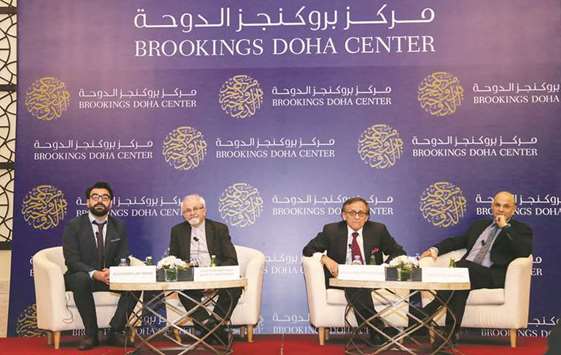The prevailing situation in Iran and and the future of that country were discussed at an event hosted by Brookings Doha Center on Monday.
The panellists were Hooshang Amirahmadi (professor, Edward J Bloustein School of Planning and Policy), Shafeeq Ghabra (professor of Political Science, Kuwait University), and Seyed Mohamed Kazem Sajjadpour (head, Centre for International Research and Education). The event moderated by Ali Fathollah-Nejad, visiting fellow at the Brookings, saw members of Doha’s diplomatic and academic circles in attendance.
He began the discussion by asking the panellists to comment on the internal challenges in Iran given the recent protests against the government that have spread among working-class people within small cities in Iran. “The protests were a result of socio-economic and political grievances against the government,” Fathollah-Nejad said.
Amirahmadi stated that since the Iranian revolution of 1979, absolute poverty has increased, the gap between the rich and poor has never been minimised, and income per capita has declined which resulted in a reduction in people’s purchasing power.
Academic Amirahmadi criticised Rouhani’s economic policies and said it did not provide a solution to the economic challenges faced by the people of Iran. Seyed Mohamed Kazem Sajjadpour said that he believes that people should revisit their understandings of Iran’s foreign policy, which is shaped by the existence of a narrative that depicts Iran as a threat.
When commenting on Iran’s foreign policy towards Syria and Iran’s role within the region, he highlighted that Iran rejects the notion of hegemony and believes that it is not possible for any player to achieve hegemony in region. Shafeeq Ghabra commented that Iran is an important player in the region and is concerned with its relationship with the West. According to Ghabra, Iran’s project in the region is sectarian and has overplayed the sectarian approach. This, he added, has resulted in losing the support from nations in the region.

Panellists are seen during the discussion.
